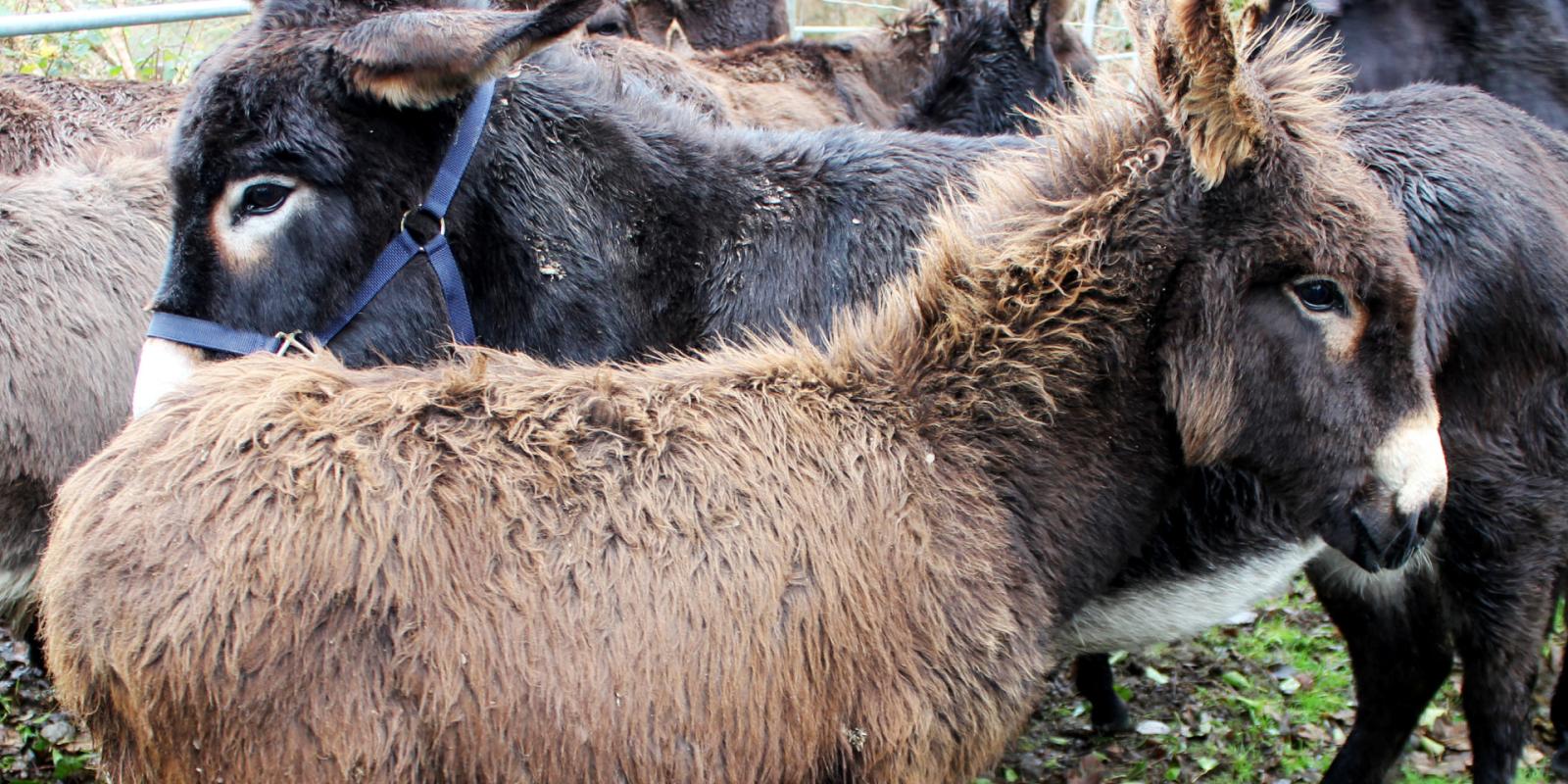
Donkey welfare in Ireland has reached crisis point.
Understanding the welfare crisis
Several issues affecting the wellbeing of donkeys in Ireland are happening at the same time, with a history of unplanned and unmanaged breeding lying at the root of this complex crisis.
Many donkeys have yet to be registered with a passport agency or given a microchip, which means that the number of donkeys at risk of poor welfare in Ireland is currently unquantified.
Unfortunately, Covid-19 and an increased cost of living have only added to the challenges for donkey owners and placed even more donkeys at risk.
A sanctuary at capacity
The welfare crisis has put pressure on our welfare services at an unsustainable rate.
In 2021, we began reserving space at our sites solely for the most vulnerable donkeys. Since then, we have only been taking in pregnant mares or mares with newborn foals.
We have also had many donkeys returned to our sanctuary farms from guardian homes. Last year we took over 100 of these donkeys back into our sanctuaries, and we predict an even higher number to return in 2023.
In March 2023, we hit our capacity and have no more space for donkeys from crisis cases in the community.
We commit to our relinquished donkeys for the rest of their lives, so it's vital that our teams can continue to ensure high welfare standards for them.
Our teams continue to respond to extreme cases of neglect, abandonment and cruelty, and we responded to over 2200 telephone advice calls in 2021 and 2022.
By offering support in the community, we are continuing to make a positive difference for more donkeys.
Collective effort required
The vast scale of the crisis for donkeys in Ireland means that investment in additional land or farms cannot resolve the situation alone.
This crisis requires a collective and long-term solution.
Those who can make a profound difference for donkeys in Ireland must come together to work towards a sustainable future.
From donkey keepers to the Irish government, we are working with the people best placed to affect change.
Working with donkey owners
We place a strong emphasis on education and community support, offering a wide range of advice and support to help donkeys and their owners.
Our welfare team provides support to donkey keepers on a daily basis. The team advise on feeding and housing donkeys through to helping source emergency and routine treatment. In 2022 we provided support on over 1100 occasions to donkeys and their owners across Ireland.
We must encourage responsible ownership to begin to reduce the scale of the crisis in Ireland. Supporting people to make responsible choices regarding breeding is fundamental to tackling this crisis at its source.
Sustainable change for good
We believe that a lasting solution to the donkey welfare crisis in Ireland must involve changes to government policy and law enforcement practices.
By improving the lives of donkeys in the community and advocating for better welfare through government and law enforcement, we can help many more donkeys than we can by providing sanctuary care alone.
We are working with authorised agencies to help those changes come about as quickly and effectively as possible. In the meantime, we continue our work on the ground, trying to help donkeys in desperate need.
What to do if you're concerned about a donkey's welfare
Knowing what to do if you see or hear about a donkey suffering from poor welfare in Ireland is an important step in helping us to resolve this crisis.
If you see a donkey in poor health
Our website offers advice and guidance on reporting donkey cruelty.
If you own a donkey and need support
You can contact our welfare team on 022 49013 or by submitting an enquiry form.
The team can provide information and support on accessing critical donkey welfare services such as farriery and dentistry and advice on castration and other veterinary services.
Make a donation
Our welfare and farm teams work hard to improve donkey welfare throughout Ireland, and this would not be possible without the public's generosity.
